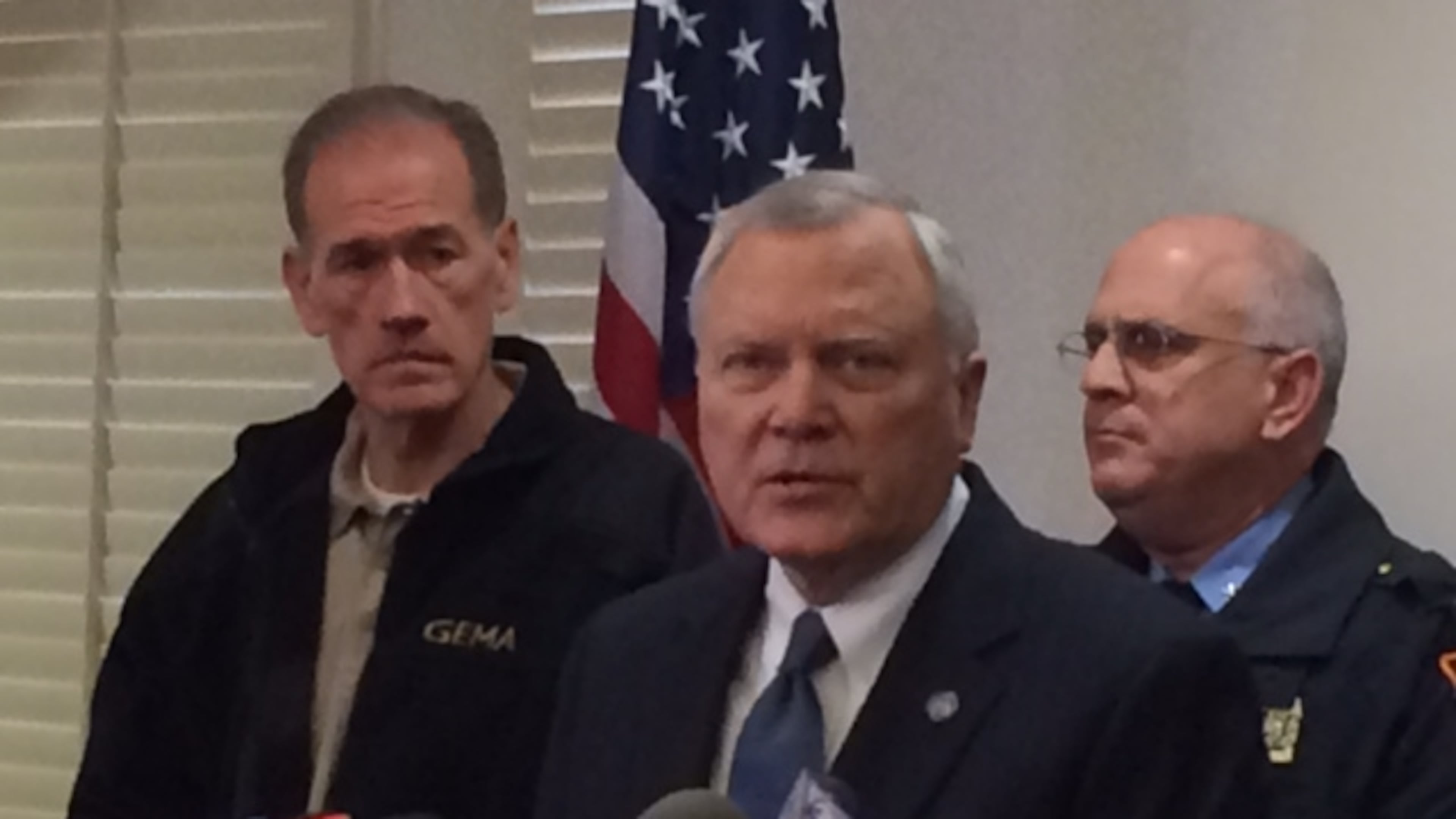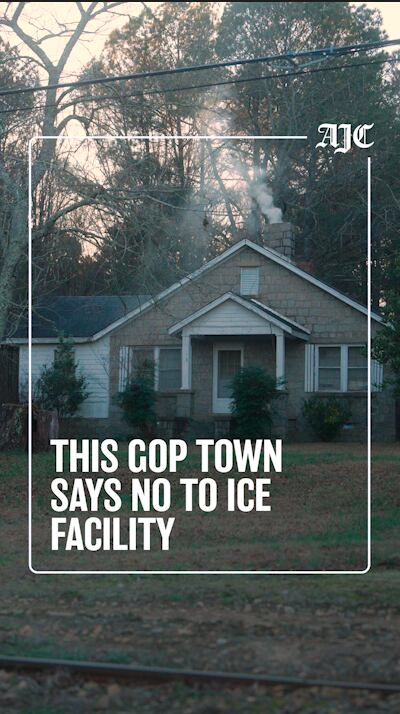Deal apologizes for storm response

Staff writer James Salzer contributed to this article.
Gov. Nathan Deal for the first time Thursday vowed to change how the state handles emergencies to prevent a repeat of the icy gridlock that turned Atlanta into a laughingstock amid criticism that his response didn’t go far enough.
At a bruising press conference, the governor and his top emergency deputy unequivocally apologized for the lackluster response to the epic traffic jam that ground the region’s biggest metropolitan area to a halt. Deal said he didn’t learn of overnight weather changes until he arrived in his office early Tuesday, and he said state officials would in the future “err on the side of caution” even if it leads to jabs that they overreacted.
“I can say this to you: We will be more aggressive,” he said. “We will take those weather warnings more seriously.”
Deal also extended the state of emergency through Sunday night to assure that state agencies and local governments have the resources they need to clear roads and remove all other storm-related obstacles.
Decisions to open classrooms, office towers and government buildings — and then almost simultaneously urge them to return home as the first snowflakes fell — called into question the response of Deal’s deputies. Charley English, who runs the Georgia Emergency Management Agency, apologized for “getting this one wrong.”
“I made a terrible error in judgment earlier, late on Monday afternoon and early Tuesday,” said English, who also said he was sorry for making “regretful” statements about Georgia’s response earlier. (English had suggested during a news conference Wednesday that he didn’t think the traffic was bad Tuesday afternoon. He had also told reporters that if he had it to do over again, he would have made the same decisions.) “In the future you can rest assured that when the forecasts change, there will be a much more aggressive response.”
Deal said improved government coordination was essential, and he agreed with Atlanta Mayor Kasim Reed’s push for a staggered release of students, office workers and public-sector employees to prevent streets from being flooded. He also said his staff would explore ways to restrict tractor-trailer traffic in metro Atlanta.
It was too late to restrain critics, however, who pounced.
“What we’ve experienced this week is a problem that is bigger than any single city or school district,” said state Sen. Jason Carter, D-Atlanta, who is challenging Deal this year for the governor’s office. “People all across Georgia were harmed by both a lack of preparation and then inaction at the highest level of state government.”
Deal dodged questions about English’s future with the agency, saying “it’s way too early to talk about firing anyone” and that the responsibility for the government’s lackluster response is ultimately his.
Emails obtained by The Atlanta Journal-Constitution also show Deal’s team raised questions about the severity of Tuesday’s storm almost a full day before it hit. Deal’s chief of staff, Chris Riley, pressed English about the storm’s impact as early as Monday afternoon.
“Everyone keeps trying to tell me how bad the weather is going to be but I keep saying if the weather was going to be bad, Charley would have called and he hasn’t called me,” Riley said in an email to English.
The two later apparently talked by phone, and the governor’s staff said Riley pressed English on the issue. English, who has been with the agency for almost 20 years, acknowledged Thursday that he blew the call on the storm by not fully alerting the Deal administration about its impact on Atlanta until about 9 a.m. Tuesday.
State Schools Superintendent John Barge, who is challenging Deal in the GOP primary, said he grew concerned about the weather late Monday but decided against warning schools to shutter classrooms for fears of overreaching. But he noted that governors in Alabama and Mississippi had issued emergency orders hours before Deal.
“I don’t want to kick a person while they’re down,” Barge said. “I know these calls are difficult to make. But you’ve got to exhibit leadership, even if you think it’ll make some people mad at you.”
State lawmakers, too, expressed disappointment but said it is too early to say whether the mess will result in legislative action.
“Any time you have an event like this, you want to make sure everyone is on the same page,” said state Sen. Buddy Carter, the chairman of the chamber’s Public Safety Committee. He and other lawmakers helped the public dig out from icy side streets, an experience that could lead to questions about whether state and local agencies have enough resources to do their job right.
House Speaker David Ralston supported the governor’s call for a review but said the National Guard, Department of Transportation and State Patrol performed well. He said the state should have no role in forcing local schools to close.
“Local school officials have done a good job with that,” said Ralston, a Blue Ridge Republican. “They know what the conditions are on the ground. I don’t think the governor not having that ability played a role in this situation.”
House Public Safety Committee Chairman Alan Powell, R-Hartwell, said his contacts at the emergency management agency assured him they were prepared by noon Tuesday. Powell said he spoke with a deputy director who told him they had 30 employees who had packed their bags for extended duty.
“They came to work that morning knowing they would be there,” Powell said. “Seems to me someone was doing some planning over there.”
Budget discussions are well under way at the Capitol, where lawmakers are scheduled to resume work Friday. Deal’s spokesman also said the governor would dip into the state’s $15.8 million emergency fund to help pay for storm-related costs. State agencies will cover the cost of cars towed at the state’s direction — although it won’t pay for storage.
“I think we learned a lot of lessons and gained a lot of knowledge — although that knowledge won’t be any good unless we apply it,” Buddy Carter said.
Georgia and its leaders might get a chance sooner rather than later to see whether the lesson has indeed been learned. Extended forecasts predict a good chance of snow at the end of next week.



